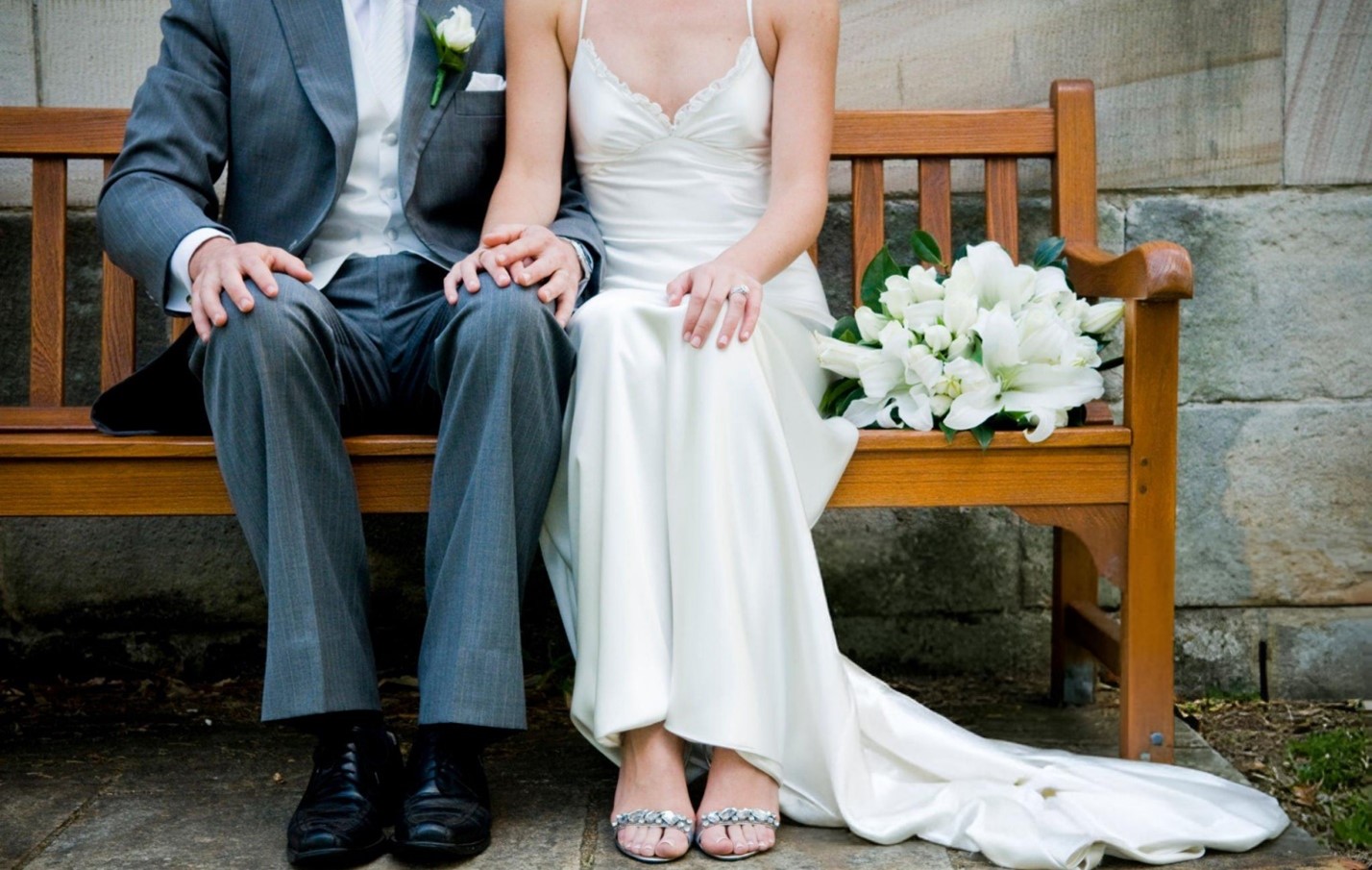Once upon a time, it was all so simple. A woman got married, and she took her husband’s surname. No questions asked, no eyebrows raised. It was a tradition as dependable as soggy summers and queueing. But like all good British traditions — think: smoking on trains or BlackBerry phones — it’s swiftly falling out of favour.
A new survey has revealed that only 35 per cent of women aged 18 to 34 plan on taking their husband’s surname after marriage. A further 24 per cent intend to keep their maiden names. Which leaves us with a rather mysterious 41 per cent, many of whom, it appears, are marching bravely into uncharted territory: double-barrelling, name-blending, and, in some tragic cases, both.
Double-barrelling used to be a preserve of the aristocracy — a quiet signal that one’s ancestors probably owned a few serfs or at least an extensive wine cellar. But the hyphen is no longer a mark of status; it’s a punctuation point of practicality, a truce in the family name wars.
Yet it poses a pressing question: what happens when two double-barrelled people marry each other? Do they morph into a terrifying four-part mega-name? The Smith-Johnsons wed the Clarke-Winstons and become the Smith-Johnson-Clarke-Winstons? It’s not just a surname at that point — it’s a Gregorian chant.
Of course, the boldest among us eschew hyphens altogether and leap into the world of name blending, a process known in some corners as “meshing.” This involves taking two surnames and smooshing them together into a new, often baffling, hybrid. The result can be charming, sure, but more often it sounds like a rejected brand of probiotic yoghurt.
Take, for instance, the case of television presenter Dawn O’Porter, who added a whimsical “O’” to her surname after marrying actor Chris O’Dowd. The gesture was sweet, perhaps, but now she sounds like a minor character from Father Ted.
And while name-meshing has the appeal of creative flair, most outcomes resemble the sort of name a toddler might invent for their imaginary friend. There are few scenarios in which this sort of Frankenstein surname can be pulled off without sounding like a toothpaste brand.
Personally, I went the traditional route. I took my husband’s surname when we married, though I still use my maiden name professionally — not for any high-minded feminist principle, but mostly so I can post stories about him online without them turning up on the first page of Google. It’s a useful layer of plausible deniability.
Luckily, my husband’s surname was sensible — neutral, decent, nothing too obscene or anatomical. But many women are less fortunate. For generations, women have endured the silent torment of adopting surnames like Handcock or Shufflebottom. In an era of hard-won equality, it seems only fair that we finally push back on the idea that women must simply accept such linguistic cruelties.
All that said, we’re reaching a crisis point. While everyone absolutely should have the right to choose or invent a surname that suits them, someone — somewhere — needs to keep an eye on things before society descends into surname anarchy.
We cannot all be expected to memorise long strings of compounded surnames, especially when we’re already struggling to recall the PIN to our phone or the name of our latest colleague. Surely Keir Starmer has someone tucked away in a dusty office who can be assigned to regulate these things. A Minister for Nomenclature, perhaps?
Because if we’re not careful, by 2050 we’ll all be introduced as “Hi, I’m Lucy Farnsworth-Smith-Kensington-Bogbottom, and this is my husband Toby Featherstone-Pickles-Jones.” And that, frankly, is no way to live.






